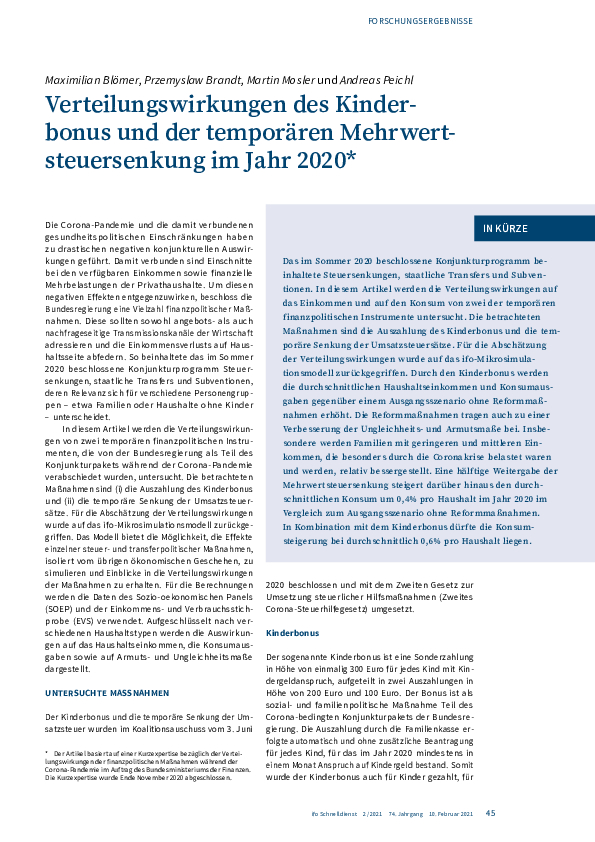Distributional Effects of the Child Bonus and the Temporary Reduction in VAT in 2020
ifo Institut, München, 2021
ifo Schnelldienst, 2021, 74, Nr. 02, 45-50

The stimulus package adopted in the summer of 2020 included tax cuts, government transfers, and subsidies. This article examines the distributional effects and the impact of the child bonus and the temporary reduction in VAT rates on consumption. The ifo microsimulation model was used to estimate the distributional effects. The child bonus increases average household income and consumer spending compared with a baseline scenario without reform measures. The reform measures also contribute to an improvement in inequality and poverty measures. In particular, lower- and middle-income families, which were and are particularly burdened by the coronavirus crisis, are relatively better off. A half pass-through of the reduction in VAT also increases average consumption by 0.4 percent per household in 2020 compared to the baseline scenario without reform measures. Combined with the child bonus, the increase in consumption is likely to average 0.6 percent per household.